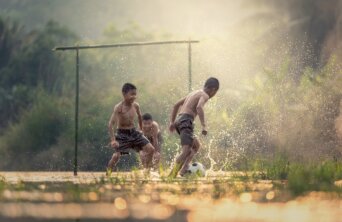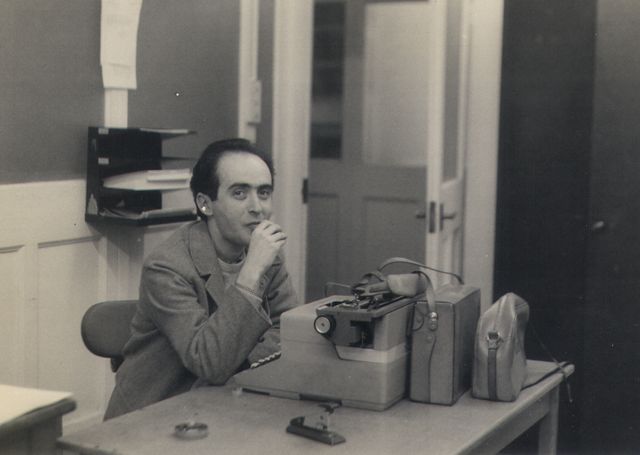- About
- Topics
- Story
- In-Depth
- Picks
- Opinion
- News
- Donate
- Signup for our newsletterOur Editors' Best Picks.Send
Read, Debate: Engage.
| topic: | Child rights |
|---|---|
| located: | Brazil |
| editor: | Ellen Nemitz |
International Literacy Day on 8 September celebrates education, highlighting the importance of providing literacy for everyone. The United Nations has been observing the international celebration since 1967. This year, it comes with an apt theme for Brazil: promoting literacy for a world in transition and building the foundation for sustainable and peaceful societies.
The goal of promoting education to transform the world into a place of socio-environmental justice motivates many WWF campaigns in Brazil. The global NGO promotes play connected to nature and inclusivity through children's toys and games.
This year, WWF's "Restore Nature" (Restaura Natureza) Olympics will take place for a second time, bringing to schools theoretical and practical activities on ten topics: protective laws, water shortages, biodiversity, climate change, food security, restoration techniques, communities, native peoples, ecosystem services and conservation.
"Restaura Natureza places the school community as a central element in the formation of a new awareness with sustainable habits, and recognises the school community as a locus for the development of sustainable lifestyles," reads the project's presentation.
Despite the work carried out by WWF and other NGOs, general education and literacy in Latin America are stunted by a lack of infrastructure, financial and human resources, and deep inequality. In August, FairPlanet investigated independently borne solutions that create pathways to education for indigenous communities in Peru affected by racism and economic disparities.
Brazil faces amplified challenges due to its vast size, with education resources being a pervasive issue. Despite recent years' improvements, the infrastructure of schools tailored for first years of education remains extremely poor, notes a report by the NGO Todos pela Educação (All for Education), based on the 2022 School Census released by the National Institute for Educational Studies and Research (INEP).
The report finds most public schools that offer early primary education in the country lack crucial facilities such as a lunchroom, library, reading room and playgrounds. Bathrooms are commonly not equipped with proper furniture for children under six, and most gravely, many institutions are not equipped with sewage systems, a water supply or rubbish collection services.
"In the country's unequal reality, schools have a fundamental role to play in offering children the stimuli they need to develop not only cognitively but also physically and socio-emotionally," says Daniela Mendes, Education Policy Analyst at Todos Pela Educação.
Mendes adds that this reality does not affect all kids in the same way since poor, black and indigenous children and those living on the peripheries or in rural areas are most affected by the lack of basic conditions for human development.
"The negative impacts of poor quality schooling in early childhood can be felt throughout life," she concludes.
To build a better scenario, besides having an important role in research, the organisation will also advise the Brazilian federal government, which has just created a work group to analyse and advance public policies regarding early childhood.
In June, the Ministry of Education announced a program to address primary education weaknesses caused by the pandemic and ensure age-appropriate literacy skills for children.
Image by Sasin Tipchai.

